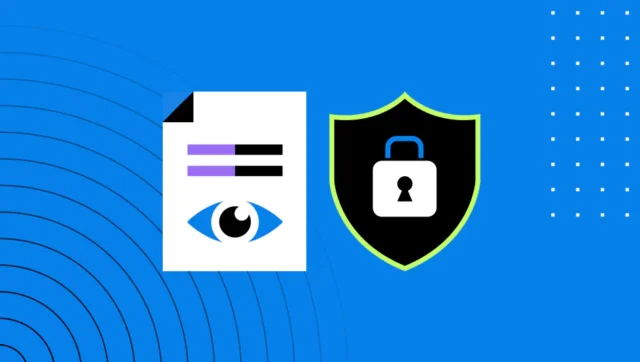
In recent years, the field of mental health has experienced significant technological advancements that have streamlined various aspects of patient care. One critical area that continues to undergo transformation is mental health billing.
With the ever-evolving healthcare landscape and increasing demand for mental health services, innovative billing software solutions are paving the way for a more efficient and financially sustainable future.
In this article, we’ll explore the emerging trends and innovations in mental health billing software, which promise to revolutionize the way mental health practitioners manage their billing processes.
1. Automation and Artificial Intelligence

One of the most transformative trends shaping the future of mental health billing software is the integration of automation and artificial intelligence (AI). In a survey, it was found that about 61% of adults in the United States favored leveraging AI for medical billing to avoid errors.
Psyquel notes that by leveraging AI-powered billing solutions, mental health practitioners can automate repetitive tasks such as claims submission and payment posting, effectively decreasing their dependence on manual labor. Incorporating automation in the billing process not only streamlines the revenue cycle but also minimizes errors that might result in claim denials or delays.
According to statistics, implementing automation can lead to a significant reduction of 60% in billing costs, allowing manual staff to concentrate on more crucial tasks that require human intervention.
Moreover, AI-driven predictive analytics play a crucial role in identifying potential billing issues before they escalate, enabling proactive problem-solving and driving improved financial performance for mental health practices.
Embracing AI in mental health billing holds tremendous promise for a more efficient and error-free billing process, benefiting both practitioners and their patients.
2. Integration with Electronic Health Records (EHR)
A significant trend revolutionizing the future of billing solutions in the mental health industry is the seamless integration between mental health billing software and Electronic Health Records (EHR) systems.
According to statistics from 2021, approximately 78% of office-based physicians and an impressive 96% of non-federal acute care hospitals had already adopted certified EHR systems.
This integration of EHR and billing data is proving to be pivotal, as it ensures enhanced data accuracy, streamlined workflows, and ultimately, improved patient care.
By leveraging the interoperability of these systems, mental health practitioners can access patient information and billing data through a unified interface, eliminating the need for duplicate data entry and significantly reducing the risk of billing errors.
3. Telehealth Billing Solutions

According to CMS reports, in 2021, the period between March and October 2020 witnessed an extraordinary surge in telehealth services, with a record-breaking delivery of approximately 68 million services. This figure represented a staggering 2,700 percent increase when compared to the same period in 2019.
The rise of telehealth has brought a transformative change to mental health services, providing patients with increased accessibility and convenience.
However, billing for telehealth sessions can be intricate due to the variations in regulations and insurance policies across states. The future of mental health billing software lies in specialized solutions tailored explicitly to address the unique challenges of telehealth services.
Advanced software can now automatically determine the correct billing codes based on the type of virtual visit, track reimbursement rates, and ensure compliance with state-specific regulations, significantly simplifying the billing process for both practitioners and patients.
4. Real-Time Eligibility Verification
A persistent challenge in mental health billing is the real-time determination of patient eligibility and insurance coverage. Statistics indicate that more than 75% of claim rejections and denials by payers are caused by inaccuracies in insurance eligibility verification.
To address this issue, future billing software solutions are expected to integrate real-time eligibility verification features. By incorporating such capabilities, mental health practitioners can accurately verify insurance coverage at the point of service, enabling patients to be fully informed about their coverage and financial responsibilities upfront.
This proactive approach reduces billing complications and minimizes potential payment issues that could arise later on, enhancing the overall billing process for both practitioners and patients.
5. Enhanced Security and Compliance

Data privacy and security remain of utmost importance in healthcare, including mental health practices. As cyber threats continue to evolve, it is crucial for future billing software solutions to prioritize various security measures.
According to data from the HHS Office for Civil Rights (OCR) data breach portal, the healthcare sector encountered around 295 breaches during the first half of 2024 alone. Disturbingly, these breaches exposed the sensitive healthcare data of more than 39 million individuals within the initial six months of the year.
Given the severity of these breaches, mental health billing software must be equipped with robust features such as data encryption, secure cloud storage, and strict compliance with Health Insurance Portability and Accountability Act (HIPAA) regulations.
By incorporating these security measures, billing software can effectively safeguard sensitive patient information from potential breaches, ensuring the confidentiality and integrity of patient data in mental health practices.
Conclusion
The future of mental health billing holds immense promise in revolutionizing revenue cycle management for practitioners. As the healthcare industry undergoes continuous evolution, the pivotal role of mental health billing software cannot be overlooked.
By embracing emerging trends and innovations in billing solutions, practitioners can redirect their focus toward providing enhanced patient care while reducing administrative burdens.
This shift will undoubtedly lead to improved outcomes for both providers and their patients, positioning mental health practices for success in an ever-changing healthcare landscape.









